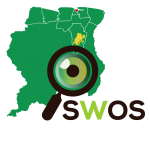On July 5th, 2024, the board of SWOS organized a researcher evening, during which a platform was given to researchers operating in Suriname to present either preliminary results or final outcomes of recent investigations. An audience of about 50 people gathered in the Lalla Rookh building in Paramaribo, and under the guidance moderator Mrs. R. Eersel, M.D. they listened to eight presentations of outstanding research performed in Suriname.
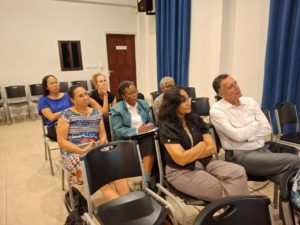
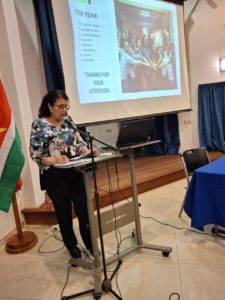
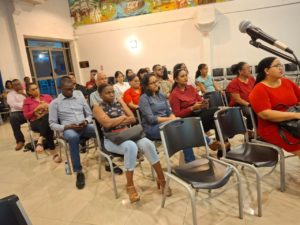
Dr. Stephen Vreden on behalf of the SWOS board welcomed everybody and emphasized that in the 24 years of the existence of SWOS an increase in professionality occurred. Sharing of research data should not happen by publications alone, but also via oral communication concerning ongoing and finished investigations. This can also lead to cooperation in research. Then eight studies were presented.
Mrs. J. de Vries, MSc., physiotherapist, shared the results of a retrospective analysis done in 2020 of data from 2015 till 2017 concerning referrals to the department of lung disease of the Academic Hospital Suriname: Current state of respiratory infections in Suriname, a retrospective analysis of 4987 hospital files. The ranking of infectious disease, COPD and asthma under those referred was presented.
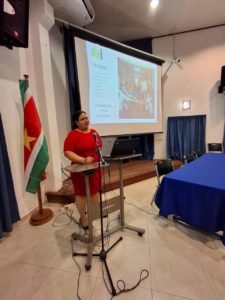
Mrs. M. Labadie-Bracho, MSc., reported on the work of the department of molecular biology of the Medical Scientific Institute (MWI ( Medisch Wetenschappelijk Instituut). In her presentation, named “Molecular and serologicial research in MWI” she explained that the accent in the work of the molecular department lays on early diagnosis of HIV in neonates, antiretroviral restistance testing of the hiv-virus and malaria research (genetic profiling, PCR-RFLP) which are essential to perform surveillance and outbreak analyzes during Suriname’s process to reach elimination of malaria.
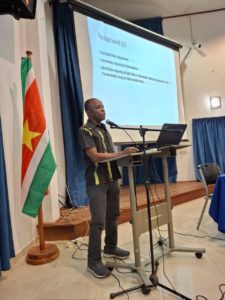
Dr. S. Vreden (SWOS) presented the study concerning prevalence of Lyssavirus in vampire bats in the coastal area of Suriname.
Risk assessment rabies in cats and dogs.
Interviews taken from farmers in the coastal area of Suriname showed that there is a substantial amount of bat bites taking place in cattle living in the coastal area. This makes the situation concerning possible transmission of rabies in Suriname quite vulnerable. Final results of research done on fresh feces of bats and antibodies in serum of livestock in order to find information on the spread of the Lyssavirus among vampires and cattle is pending.
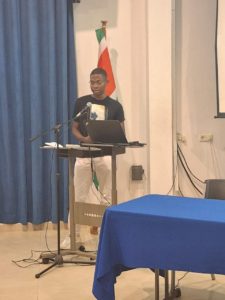
Mr. A. Neus, M.D. presented the methodology of a study by SWOS in the district of Commewijne, Suriname: Cluster analysis of hepatitis C infections via pedigree and phylogenetic research in Commewijne. The aim is to identify genetic variants of HCV and the ways of their transmission in areas of high prevalence.
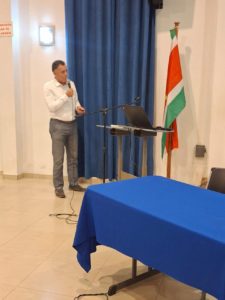
Prof. Dr. W. Zijlmans presented on behalf of the Meki Tamara group. Maternal anemia and pediatric neurodevelopment. He showed preliminary results of research concerning pregnancies exposed to heavy metals in the interior of Suriname.
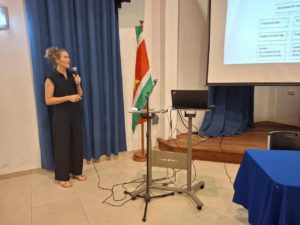
Mrs. L. Woittiez, MD, reported on her PhD study on opportunistic infections in HIV concerning the diagnosis of histoplasmosis by an LFA antigen test of urine collected in HIV infected persons with different degrees of suspicion of histoplasmosis infection.
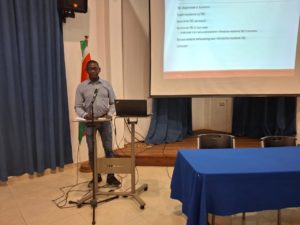
Mr. E. Commissie, MD., presented observational data concerning patients with resistant tuberculosis. In Suriname, bout 8 % of TB cases has low level resistance against rifampicine (RIF). Increasing the RIF dose in these cases resulted in a similar treatment outcome as in those with RIF sensitive TB. Multiresistant tuberculosis is rare in Suriname.
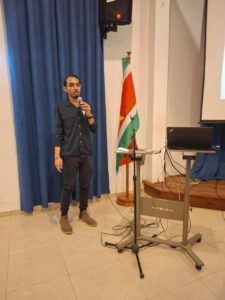
Mr. R. Paidin, MD. Presented on behalf of Cervisur about the methodology of the ongoing study concerning human papilloma virus (HPV) in Suriname. Under the title ‘Prevention of cervical cancer’ he showed the acceptability of HPV self-sampling which was studied in 533 women. Preliminary results: 80% chose for self-sampling above testing by a health worker and a considerable percentage (50%) showed positive for relevant strains of HPV.
The board of SWOS was very content with the overwhelming interest researchers showed to present on this occasion and decided to organize two of these events per year. The presentations and the vivid discussions afterwards were of high standing quality.
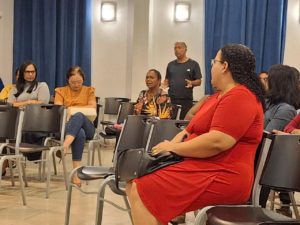
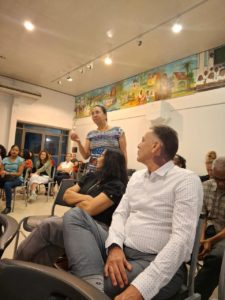
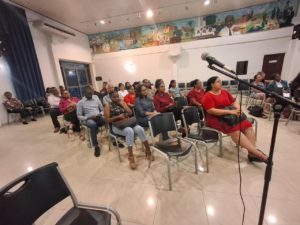
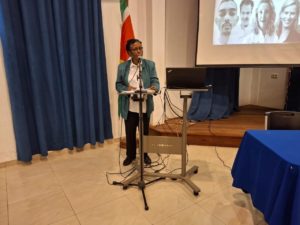
Mrs. M. van Eer, MD, secretary of the board of SWOS, thanked the presenters and the audience for their participation. On behalf of the SWOS a fund named “Fonds verstrekking Stipendia voor Onderzoekstudenten (FSO)” (meaning Subsidy Fund for Research students) was launched. This fund gives researchers the possibility to receive financial aid to accommodate college and university students of Surinamese institutions by a stipend.
